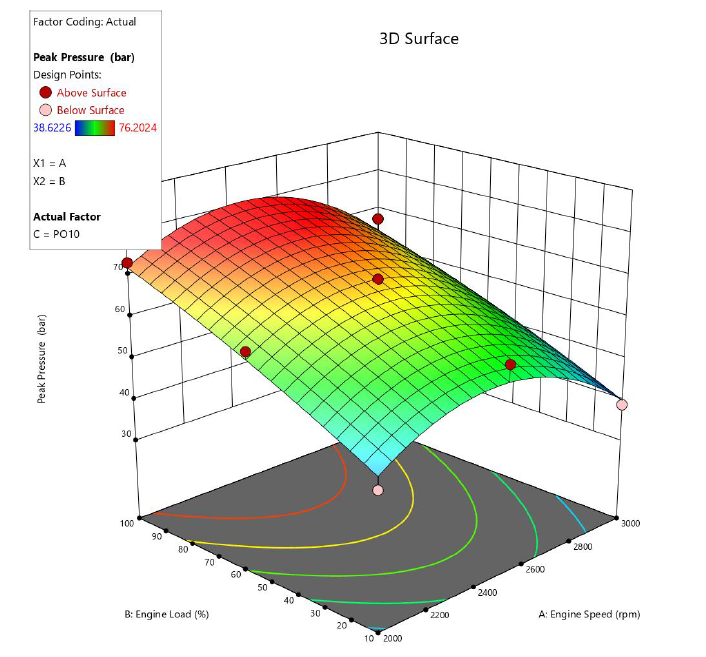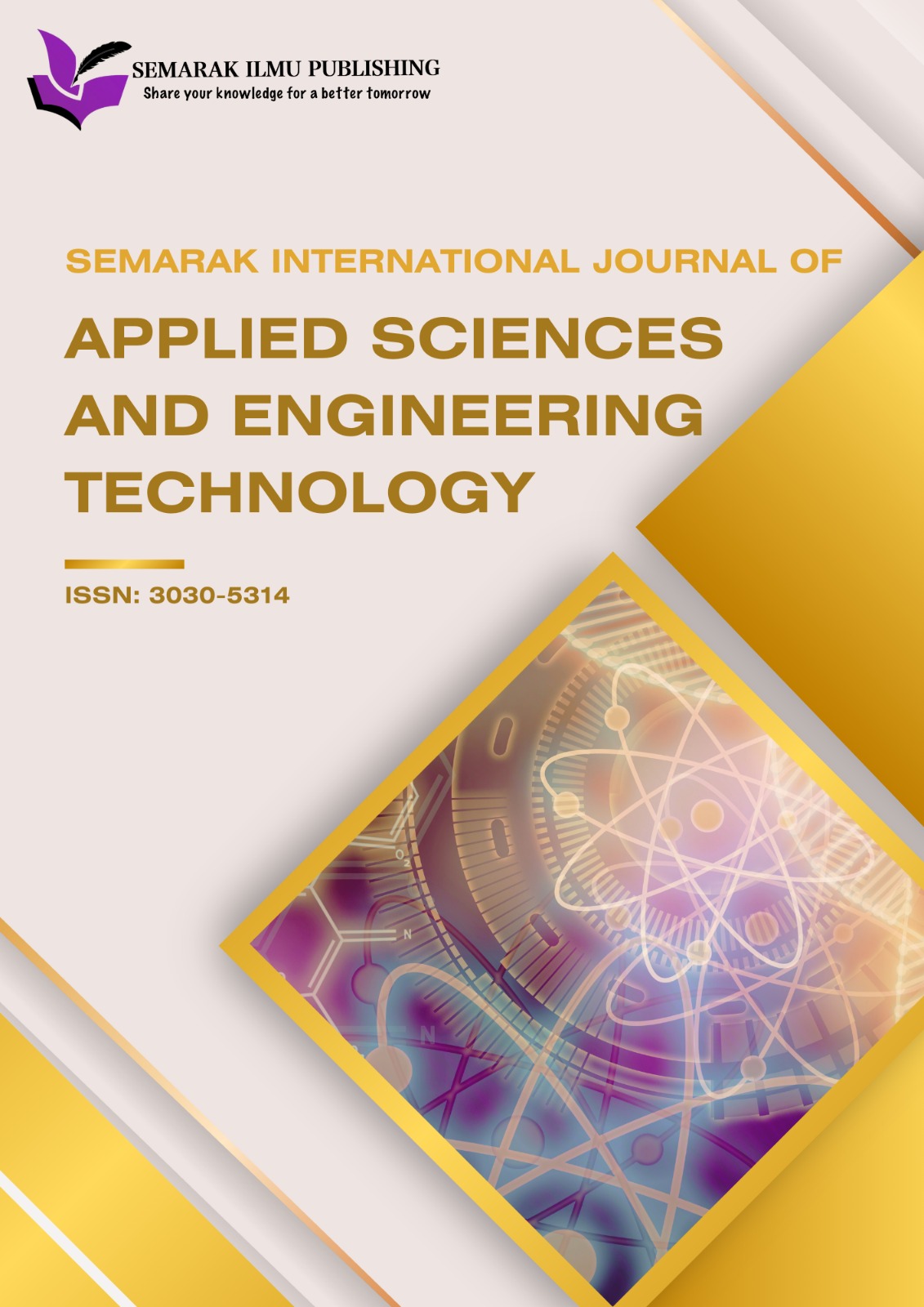Optimizing Combustion Pressure in Single-cylinder Diesel Engine with Response Surface Methodology (RSM) using Blended Plastic Oil and Palm Oil Biodiesel
Keywords:
Palm oil, plastic oil, density, viscocity, break spesific fuel consumption, combustionAbstract
Fossil fuels are both non-renewable and unsustainable. With decreasing diesel resources and increasing plastic waste concerns, exploring environmentally friendly alternative fuels—plastic fuel—is crucial. This study investigates the influences of blended fuel derived from polypropylene plastic waste and palm oil biodiesel (B100, PO10, and PO25 blends) on the peak pressure in single-cylinder diesel engines. The engine load (10, 55, and 100%), engine speed (2000, 2500, and 3000 rev/min), and fuel mixtures of biodiesel: plastic oil (100%: 0%, 90%: 10%, and 75%: 25%) were selected as the independent variables in a Central Composite Design (CCD) experimental plan. Analysis of variance (ANOVA) was performed to explore the influences of independent variables, and desirability analysis was used to determine the optimal setup for maximum peak pressure. Results revealed that the peak pressure increases with engine speed for B100. However, for P010 and P025, the peak pressure peaked at 2500 rev/ min and then bottomed out at 3000 rev/ min. Furthermore, peak pressure increases with engine load for all fuel mixtures. Based on desirability analysis, maximum peak pressure (80.5 bar) can be achieved with an engine speed of 2500 rev/ min, engine load of 100%, and fuel type of P010. Moreover, PO10 could perform better than D100 while using less diesel. It is envisaged that blended plastic oil and palm oil biodiesel could be viable alternative fuels that reduce not only diesel usage but also plastic waste.
Downloads










